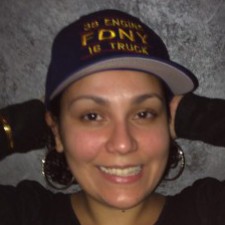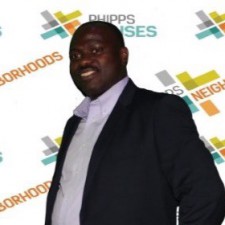Discussion:
You must be logged in to reply to this topic.
- Session 6 Foster care
-
October 3, 2017 at 10:56 am #44992

GrettaParticipantPlease post your comments on the following two videos by October 12, 2017.
Thank you.
Dr. FernandesNPR podcast on Foster care: http://bit.ly/HUS3605NPR
Ted Talk-A Child of the State http://bit.ly/HUS3605TT
October 3, 2017 at 2:55 pm #44999
Yessenia bautistaParticipantThe NPR podcast on Foster care brought up important obstacles that affects the Child welfare system. For example, Claudia was adopted at a young age and experienced abuse in five out of six adoptive homes. This is a common situation in the Child welfare and it shouldn’t be. According to the article, many children are in need of a home, Children who are adopted go though rough times in their lives and abuse from their foster parent makes a negative impact in their life.
October 3, 2017 at 8:28 pm #45004
ShoyaGParticipantNPR podcast on Foster Care
The story of Claudia Felder has a good ending, however her beginning was extremely “rocky”. Claudia and her little sister both entered the foster care system at a very young age. She dealt with physical and sexual abuse from her mother and then the foster homes she entered. This was an ongoing cycle for Claudia, she felt and had no security in her life. Living in Los Angeles the foster care system is in on-going crisis. Most children wait for emancipation and go on to live independently once they become of age(18). These children age out of foster care not having a strong family support system. Claudia Felder was finally adopted by her social worker and her life changed. She went on to becoming an Outreach Worker for children in the foster care system.
October 4, 2017 at 10:19 am #45018
David CoqParticipantCLAUDIA FELDER NPR podcast on Foster care
http://www.npr.org/2013/09/22/225148325/foster-care-in-america-too-many-kids-not-enough-homesChildhood trauma does not come in one single package, in matters of child abuse it all starts from one beginning and that beginning is parenthood. To be a parent for a child is to be a role model for them to better themselves in society as they grow older in the world so that they may transition easily into the process of adulthood. Discipline doesn’t mean to terrify them with the image of hell but to help foster, nuture and mold them into an upstanding humnan being; the best they can be to their ability. From the Claudia Felder case it is sad that There are about 400,000 kids in foster care in the U.S. and with the life that they live it’s even more unfortunate that some of them don’t remember their parents and all they know is moving; moreover what’s even more heartbreaking is that sometimes like Claudia Felder mentioned she had to raise her little sister through foster care all by herself when she can barely take care of herself; but she’s raising her little sister right alongside her. All the foster homes Claudia has been in (six, 6) has been physically and sexually abusive ; and when it comes to value of a home all that is really needed is a real loving warming family under the roof; the foster care system must make a change soon in how they screen their foster families because no child or children deserve to go through that kind of torment.
LEMN SISSAY – TED TALK- A CHILD OF THE STATE
I like how the introduction LEMN SISSAY opened up his session to the audience by describing the many different great fairy tales, comic book heros, and actual life time people that are currently living and deceased that have such an impact on society although they were either adopted, orphaned or a foster child. It goes to show that no matter how hard life knocks you down, or no matter what position life may put you in; you have the opportunity to be great under any circumstance. Moving on what I learned from Sissay’s story of his own upbringing is that in the 1960s when his mother was pregnant and vulnerable, the social worker’s primary aim for any vulnerable woman at this time who were single and pregant were to sign the adoption papers. I felt upset that Sissay had to go through what he went through in his life. Especially bieng incarcerated at 15 years old and being watched over by ex enforcer officlals (police officer, army officer etc.) I believe family really does give you reference points; we all know someone who knows us for as long as we’ve lived or known us for a long time and to lose someone like that and acquire someone who knows you for a couple of months or about a year each year then its very distressing
October 5, 2017 at 10:21 pm #45067
CindyParticipantNPR podcast on Foster care: The podcast began with a positive image of Claudia Felder’s life. The podcast took a turn with Felder’s experiences in the foster care system. Arun Rath described pulling children out of their foster home and introducing them to their next foster family. Indroducing any child to a new family would be a scary experience because everything will be new to them such as the people, environment, etc. Cris Beam spoke about the number of kids in foster care. Beam continued by explaining that foster children are not a meter of how the child welfare is failing, but how we are failing society by not addressing the issues that brought youths into the foster care system such as substance use, sexual abuse, etc. Thus, we need to prevent the problems before they happen by providing families with support. I empathize with the individuals who grew up in the foster care system and I believe that more steps should be taken for children and families to prevent children from being placed into foster care.
October 5, 2017 at 11:20 pm #45070
EmmanuelaParticipantThe story of Claudia was sad to me because she had to dealt with physical and sexual abuse all her life by her own mother and foster homes. Claudia had move a lot doing her childhood life, she felt like she had no security in life. As she got older she end up being adopt by her social worker, I thought that was nice of the social worker to do that. I think we as human services need to make changes in the foster care system because they are a lot of children’s that needs love, family and a home, the children’s don’t have a voice so we as human services need to be their voice by advocating for them. The foster system needs special attention before a child is place into those home and family one way is screening those families and homes.
October 9, 2017 at 5:06 am #45184
Linda HenryParticipantOften, when people rise to success, and seem to have their lives all put together, it is hard to detect the physical, sexual, and psychological hurt they endured as children. The trail of their experiences follows them through to adulthood and is a daily reminder of the ill of being a child of the state, in foster care. Claudia Fielder’s story tells of the vulnerability of moving from home to home; being sexually and physically abused, and the nightmares she still experience of her biological mother being beaten in a motel room. One would wonder how such repeated abuse in five foster homes went unnoticed by social workers. It shows the need for better screening of foster and adopted families, and for regular checks with the children left to the mercies of strangers. I am appalled that no one saw the need to keep the sisters together. Her baby sister was all she had left, that gave her a sense of belonging, and that was taken away from her.I can imagine the pain she felt. Claudia eventually found a happy home after six years of moving from family to family, but how many other girls are still held helplessly in a system that seems not to be doing everything in its power to protect its children. I agree that these children need strong family support even after they are no longer in the system, that is why it is important to have proper background check of families that children are placed in. More need to be done also to address underlying issues that cause them to be in the system in the first place.
October 9, 2017 at 11:03 am #45188
TiffanipolicastroParticipantThe way Lemn Sissay speaks makes me view adoption and foster care in ways I have not viewed it before. He speaks about how children who are in foster care shouldn’t be felt pity instead they should be given respect. He speaks about the idea that people of power who have been in the foster care system fear to speak about their past in foster home without feeling like they may be stripped of their power and possibly make them less of who they are and who they’ve become. The idea behind this shows the way society has looked at the idea of foster care and adoption. Lemn Sissay speaks about the story if his mom and how in the 1960s social workers aim was to catch the mother at her most vulnerable and have her sign her rights over. Social workers aiming to take the child away from the parent is so different from where we are now as a society. I believe most social workers goal is to help single mothers build a solid foundation to be able to raise her child on her own.
Listening to the podcast Strained Foster Care System A ‘Meter of Our Social Problems’ makes me worry about the society today. Claudia Felder speaks on her experience in foster care and also in foster homes. Something that jumped out to me was when she said out of six foster homes she’s been in all but one was both psychically and sexually abusive. Its makes me wonder what the requirements are to become a foster parent. It also makes me wonder what the real reason these people are trying to become foster parents. Claudia Felder brings up the issues she was having after all the homes she’s been in. She had trust issues and anger issues and was getting into trouble in school. There is also a problem that is brought into the light about the lack of foster homes. If there is not any place to put these kids they end up in group homes, and in cots in adoption agency’s. The idea is brought to light that the problems within the foster care system are not necessarily the foster care system problem but society’s problem.
October 9, 2017 at 2:22 pm #45195
jazminParticipantNPR podcast on foster care: Claudia a 21 year old still have nightmares from her childhood past and was in foster care when she was 3 years old. It’s hard to get rid of all these nightmares because she lived them her whole childhood life. It’s sad hearing her story that any child in the foster care they just want to be accepted or taken in. Claudia wasn’t alone she had a sister 3 years younger than her. She stated that she raised her younger sister in foster care. Claudia also mention they were both moving in and out of foster care and not knowing whats or where they heading too. Reading Claudia experience from moving in an out of 6 foster homes she experience physically and sexually abuse she stated and quote “I experienced it with my biological parents and then five other homes”. I was heart broken when the foster parents didn’t want Claudia they send her out of the house but kept her sister. I can’t imagine how horrible she feels leaving the only person she close and also raised alone.
Ted Talk: Lemn Sissay starts and talks about famous fictional movies how the main characters all of them were either foster, adopted, orphans. He also mention in the 60’s how if a woman was pregnant and single hey were viewed as a threat to the community. They place them into a mother and baby homes and they would have to sign the adoption papers and people would be lining up for the baby. The mother and baby homes were run by the nurses and the adoption papers were signed they give the baby to the adopted parents and the mother would be shipped back to her home and tell people she had a little break. Lemn starts and talks about his life how his mom signed the papers and adopted him and how the mother plan was for the adopted parents to have him until she finish studies. He goes on and states how her foster parents asked him if he love them he said no and went back to foster care and mention how he became a rebel and threw red green and yellow paint as a symbol of the african flag. He then states that he had two dreams in his life which is finding his real family and write poetry. from his adult life he found his real family and how the government treat a child so horrible and how he lived it.October 9, 2017 at 8:24 pm #45203
YadiraParticipantNPR podcast on Foster care: The NPR podcast was about a young woman that essentially survived the foster care system. This poor girl was taken from her mother because of abuse, but then proceeded to be abused in her foster homes. I felt awful when she talked about being separated from her sister, which she had felt was all she had. It was nice that her social worker was able to adopt her and give her an amazing life. Unfortunately, a good home and happy ending are not the usual end to these peoples lives.
Ted Talk-A Child of the State: Lemn Sissay really DOES have a way with words. I had no idea that children can removed from their “home” as if they were objects – in the middle of the night. To have been put in prison over mischievous behavior was heart breaking. I’m glad he found his family and has become such a successful man.
October 10, 2017 at 11:48 pm #45257
ShoyaGParticipantTed Talk-A-Child of the State
Lemn Sissay is creative and expressive within his story sharing moment. I like his use of the different characters to make a point about being in foster care, orphaned or adopted. His experience from being in foster care was horrific but he emerged strong and positive. He went on to finding his family and becoming successful. Lemn’s story taught me how the adoption process took place in the sixties. How a child can be returned to the state. How easily a child can be lost in the system. How different a social workers role was in the sixties. Lemn’s experiences shows me that the foster care system has gotten better over the years however it is still not where it needs to be.
October 11, 2017 at 5:50 pm #45282
ShaniquaParticipantNPR Podcast on Foster Care: Listening to Claudia’s story really saddened me. Hearing how a child was sexually and physically abused under the supervision of people who were supposed to keep her and her sister safe is scary. What’s even more scary is the amount of children that are in the foster care system in the US. What I don’t understand is, how are all these foster families able to abuse the children in their care? Aren’t they supposed to be background checked? Although her story was sad, it had a happy ending. I love how she was able to survive the abuse and now wants to give back and help others in foster care.
Ted Talk: Hearing Lemn’s story really opened my eyes to the way the foster care system was back in the days. The way he was able to express his self and use is words was amazing. Hearing his story reminded me or Claudia’s. They were both able to go through their trauma but still come out strong. It’s amazing and surprising how much social services changed over the years yet, a lot of the same things happen in the foster care system.
October 11, 2017 at 8:25 pm #45283
Olatunji McEwenParticipantCHILD OF THE STATE
In the presentation “Child of the State” by Lemn Sissay, he exposes the reality of Foster Care and Adoption in our times by a parallel observation of what was and what’s now. This presentation is very compelling and intriguing in relation to what was and what’s now as we are overwhelmed with the notion that we have made a lot of progress when it comes to foster care and adoption. Lemn stated “What happened then is a directly reflection of what is happening now” this is a sad reality. In spite of the increase of programs and advocacy there is still much more to be done, it’s like the history of our past has been hunting us. He made a significant point that foster care children do understand the dynamics of their situation when he mentioned that “the child outside the family reflects on what family truly is more than what it’s promote to be”. He emphasizes on our inability to recognize the fact that the foster care child in our mist does not need our pity but our respect. Another important aspect is the Foster care child grow with the fear to speak about their background that’s why Lemn said “Children who have lived in foster care deserves the right to own and live the memory of their childhood.” The way he injected his personal story in the conversation is amazing. He reiterated the fact that children in foster care goes through pain and agony no one can understand. In conclusion he mentioned that “Anger becomes the expression as a search for love” I suggest this statement supposed to cause us to look beyond what most refers to as the negative behaviors and attitudes of children in foster care and seek to understand the cause for such. Government effort in this issue cannot be over emphasize as Lemn sated “How we define a democracy is by how strong its government treats its child of the state”
STRAINED FOSTER CARE SYSTEM A “METER OF OUR SOCIAL PROBLEMS”
In this article Claudia Felder’s told her story and experience in the Foster Care system. She stated that she enter the foster care system as a result of being abused by her biological mother and moved from home to home. She stated “Always moving never knowing when she was going to leave” this is the distasteful story of approximately 400,000 children in the United States who lives in foster care. Regardless of the progress the foster care system has made, the system still needs help. She explained how she was physical and sexually abused in foster care, this reveals the shortcomings of the system. What the system was trying to prevent continues to spread. It is heartbreaking to hear her mentioned that those who supposed to be caring and loving are the very ones abusing her. She stated “I experience it with my biological parent and then 5 other homes it was like an ongoing thing.” She highlight the challenges faced by foster care children after going through 5 foster home by age 6. She said “I have a lot of trust issue and a lot of abandonment and resentment issue.” This problem is not an isolated problem just for the foster care system but they are society’s problems. It will be impossible to address these problems without confronting broader issues of drug abuse, domestic and sexual abuse and poverty. Listening to Claudia’s story gives enlightenment to the sad reality children in foster care are face with. It sheds light on the fact that the main issue is not on how child welfare is failing or succeeding. It’s about how we are failing or succeeding as a society.
October 12, 2017 at 11:37 pm #45306
BelindaParticipantNPR Podcast on Foster Care:
The article on Claudia Felder’s life as a foster child is a reminder of how much work needs to be done to help these children in the foster system. All but one of six foster homes were physically and sexually abusive to Felder and one of the homes was actually her biological parents. That is surely upsetting but a reality for these foster kids. In addition to dealing with abuse, etc. Claudia was separated from her sister and sent back to the state because the family didn’t want her but wanted to keep her younger sister. Its not only heartbreaking to hear she was put out after 4 years, basically rejected, they also took her sister away from her. Its heartless to do that to kids. The foster system is in shambles and it always has been. I’ve always felt that most people take in foster kids for the money, not because they want to provide shelter, love, security and a better life to children who so desperately yearn for these things and more. Also, there isn’t enough homes to take in these kids. By a certain age they don’t want to be adopted and they wait to turn 18 so they can be on their own. I don’t blame them! After being exposed to drug abuse, domestic and sexual abuse and poverty and placed in home after home and rejected throughout their lives, i understand their desire to be on their own; however, as the article states “being independent without strong family support is dangerous. If only there were not only enough homes available for foster kids but homes that want to provide children with a healthy , loving , supportive, secure up bringing a child needs. I am glad Claudia was adopted by her social worker and found a home with family she can call her own. I hope she reunites with her sister.
Ted Talk – A Child of the State
I thought this was a powerful video. I like the fact that he mentioned all the famous people that were in foster care, which shows that you can have a successful life even if it began with foster care. Lemm Sissay was in foster care for 18 years and told about the harsh treatment he endured while there. I think if more people spoke up about it like the multiple celebrities who have a voice,maybe more will be done to help children in foster care. He made some powerful statements such as: “You can define how strong a democracy is by how it treats its child (child of the state)” and “The place where anger was an expression in a search for Love” and “dysfunction is a true reaction to untruth”.I’m glad he found his family. As he put it, “he now has a fully dysfunctional family just like everyone else”.
October 13, 2017 at 12:32 am #45310
Sandra JusmeParticipantFoster homes can be very helpful for those who needs homes. However, it can be very challenging as well. I say this because there are many kids ages from 3 years and up that has to change their homes so many times. I find that very crazy because the homes are not permanent for them. It is heartbreaking that they have to keep changing homes, and schools; and also to meet different people it is crazy. Reading about Claudia Fedler life story was very touching. Sad part is when she did not even remember how her mom looked. When she said that she was only 6 and been to 5 different foster homes I was like wow. Why is it that kids have to experience so many different faces, and so many places. When she said that one family did not want her anymore, they just wanted her sister my heart broke. She been through a lot yet at a young age. I am happy that she has found a home with her family.
I just feel that foster care system can be so messed up. Yes, they are helping you but at the same time they do not know how damaging it can make people. I only say this because they are so many people that has to shift homes just cause. I find it so devastating because they are people that begins to have love for families, and ti think that they have to go is very sad. -SJ
You must be logged in to reply to this topic.


